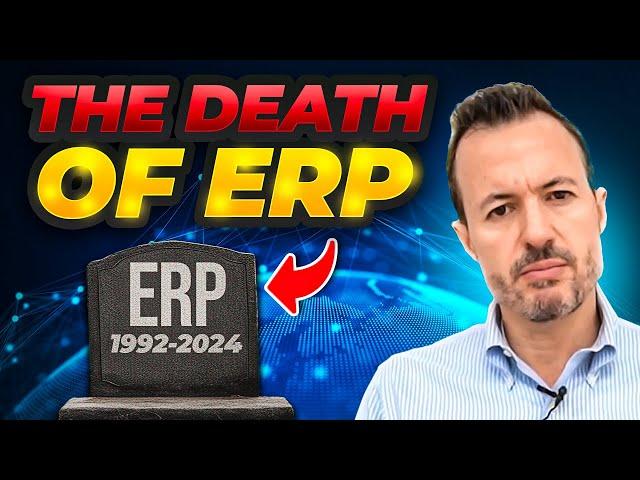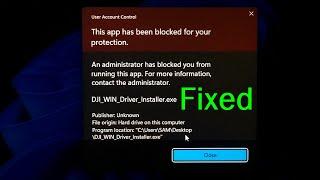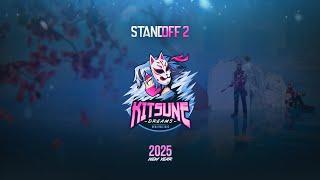
ERP Software: The End of Enterprise Technology As We Know It
Комментарии:

well given such circumstances what solution do you propose for ERP Functional Consultants, how should they cope with these this dynamically changing environment
Ответить
I don't have time for this 2 minutes in and you said nothing
Ответить
ERP's are going nowhere they're here to stay
Ответить
It's not that ERP software can't be everything to everyone. Any software tends to fall short for many companies with any amount of complexity in their business models. One of the biggest problems is market saturation. There are so many options that trying to match software to requirements alone can be a full time job. On top of that you need to assess APIs for integration possibilities. If you ask me, it's a real mess out there right now. If you decide your time would be better spent building your own ERP, I have one piece of advice for you. Hire at least one experienced developer on full time who can work directly with your departments. Sure, use remote developers, but your senior developer should be in house. Be wary of agencies. They will likely either charge you very high rates or overpromise and underdeliver.
One rising star in the ERP world is Odoo. I've been interested in this platform lately, but one drawback I see is that their software is completely propriety in design, even though it's "open source." As a developer you will have to fully commit to their platform. They don't use React or Vue or Django or Laravel. They have developed their own Python-based ORM and JS framework, so there's not only a huge learning curve but those skills aren't directly transferable to other job opportunities. You have to become an Odoo developer, which I imagine leaves little to no time for anything else.
Another observation I've had is that software is rapidly changing right now. I think in the next 5 years we are going to see development change. Companies will be more empowered to take charge of things like data modeling, content management and digital asset transformation/distribution. Companies will essentially create a large portion of their own back end in house in more of a "headless" fashion and from there push out content, marketing, drive ERP needs and workflows with various front end platforms and systems. I believe it will become imperative for companies to start training their own AI models to help facilitate such systems and allow for them to change and scale without massive development commitments.

most people will never understand an erp and of those that do, even fewer will be able to utilise them
Ответить
First of all, sorry about my english, i know the cloud is the future, but, and the services that needs to be works offline? In Brazil when you go to a shop and buy something, taxes is emited, if no internet or gov system is down taxes is saved offline to upload later, so if solution is in the cloud, how deal with this situation?
Ответить
just learning about ERP through your videos
Ответить
There are problems with “best of breed”. You can end up with gaps of capability and inconsistent data across platforms. What all businesses need is what has been the core from the beginning - a unified and comprehensive database that can be queried and edited for any use case, by whatever front end solution the user is employing, while preserving data integrity.
The database and front end can move to the cloud, and the front end solutions could theoretically be universal, if standards were agreed upon. But as of now, my money is on something like Dynamics 365, which is moving in the right direction. The only question is whether Microsoft prioritizes it, funds it, and develops it intelligently.
The future is also low or no-code. The user-facing software needs to be user friendly, clear and comfortable to work with. Only what’s needed to get the job done. The deeper, more powerful and customizable functionality needs to be there, but it should only be seen when needed, and it should be needed as rarely as possible. D365 has a bit of feature creep, and many menu options that could confuse users. Working really hard in an “Apple” direction of user-friendliness is also needed. AI could be the icing on that cake, but it’s not mature enough to be relied on for mission-critical processes, and in customer service…it is more likely to anger and offend customers than to be helpful aside from cost savings.
As of now, a pieced-together best of breed approach leaves gaps that inhibit functionality and scalability. A small business will start with that approach, and then outgrow it and have to change everything. Meanwhile, traditional ERP systems are stuck in overcomplicated legacy bloat. Those two ends of the spectrum need to meet. There need to be unified solutions that cover everything a business needs, that are flexible and scalable, but are cloud-based, user friendly, and don’t require an in-house development team to maintain for smaller businesses.

ERP, in general, focused on accounting and manufacturing and not other function in depth. It is time ERP must be flexible to integrate with others.
Ответить
He click baited you all. Everyone stating it isn't dying but yet evolving is 100% right.
Ответить
If the software operates in cloud as SaaS then it makes sense that ERP software can be a fit for everybody in multiple industry markets as long as configurations on software has a great degree of flexibility to generate unique business models with autonomy in backend and front end integration 🌍
Ответить
I am always attentive to everything they publish, it seems to me an excellent channel. This time I have to say that I do not agree with what is expressed in this video, at Odoo we aim for a 100% cloud strategy that integrates the different business areas and we do it very well, I encourage you to see the ton of improvements which we are going to introduce soon with our version 16. Perhaps the ERPs that have to change their strategy are undoubtedly those that must be completely rewritten to work in the cloud, fortunately it is not our case. We are 100% open source and that is our greatest strength.
Ответить
Erp system provide better visibility and more accurate transactions that singular platforms
Ответить
What about NetSuite?!
Ответить
I can disagree with your opinion simply from your prospective. Your prospective comes from systems claiming to be erp. But an ERP is a structural solution. It’s like saying CRMs are dying but an offline or online CSV can be a CRM. For the last year business has been booming by companies wanting a ERP built using their current software solutions.
Ответить
Eric, thanks for your deep analysis! Very useful.
Could you please also analyse a role of PLM systems in an entire enterprise automation stack?
Thanks!

90 of 100 of top companies are using SAP ERP. I think they are pretty alive
Ответить
Not dying at all. Just evolution.
Ответить
I don’t believe that ERP software is dying since software vendors like SAP, Infor, Oracle and Microsoft has been evolving as well. However its a given there’s no one size fits all solution to address today’s complex business processes. These ERP applications will need to have better integration capability and level up the security features.
Ответить
I can see your point, large Erp software companies are developing huge, complex and expensive solutions that tend to underdeliver at the implementation stage and take years to give a noticeable ROI. This can be because the customer has pressures in the business, lacks required skills and/or consultants are unable to keep pace with the non-stop service packs.
Maybe the future is for more affordable, simpler App based modules from different providers that integrate seamlessly.

I have been unable to verify the claim that "ERP software has been dying a slow death for the past few decades". I have been able to verify, through Statista, that global ERP software revenue has grown steadily from 2011 (23.8 billion USD) to 2017 (34.36 billion USD). It may be that ERP is a declining percentage of total software sales but I've not been able to verify or discredit that. I will keep looking.
Ответить
It amuses me that we continue to have the "Best-of-Breed versus ERP" debate in which I first participated in the mid 90s. The notion that BofB is a viable option is yet another manifestation of the lack of maturity amongst business leaders vis-à-vis business systems. The greatest benefactors of this debate are those who continue to give it oxygen. After decades of evidence, it is disingenuous of such people to suggest that best-of-breed has, or will ever, "replace" an integrated solution. Even with cloud technology in place, it is enormously advantageous to the users of business software to deal with as few software vendors as possible. Having a common user interface across the entire organization is as sensible as having a common language (i.e. English) by which your people, customers, and suppliers communicate. A surfeit of user interfaces poses a significant impediment to training and operations. It is important to remember that "great software with good people" will produce good results but "great people with good software" will produce great results. Today, as was true decades ago and will be true decades from now, it's all about the people.
Ответить
What about Acumatica Cloud ERP? It's seems to be the opposite of what you described in this video. Am I missing something?
Ответить
Parcialmente cierto!!! Por supuesto un sistema ERP nunca va a poder abordar todos y cada uno de los requerimientos de los clientes internos de la organización, pero esto SIEMPRE LO HEMOS SABIDO, aquí tu propuesta no es innovadora, inclusive desde hace más de 10 años de viene trabajando fuertemente en soluciones a la medida que se puedan integrar a la base (ERP), sin embargo, esta opción a pesar que es muy utilizada es por mucho más costosa, ya que implica crear entornos de interoperatividad (API, Colas Rabbit MQ…), mantenimiento de los mismos, evolución de esos mismos entornos, lo cual representa un sobre costo para las empresas, que obviamente no hablo de las grandes empresas (ellas tienen cómo pagarlo). Por eso respeto tu punto de vista pero no lo comparto, creo que todavía el software ERP es la mejor opción para una empresa pequeña o mediana, inclusive partamos que la gran parte de estas empresa tienen el caso inverso, cuentan con soluciones aisladas que no permiten la interoperatividad y al ser así no pueden operar de manera óptima, llevándolos a requerir un ERP para ello, Por tanto el ERP está más vivo que nunca, lo único es que con el nuevo concepto de ERP Cloud.
Ответить
IMHO: Avoid "best of breed" as hell! I have seen lots of satellite systems doing what the ERP already can do, they were bought/installed because of the implementation team lack of knowledge about the ERP functionality. This happens in all areas, from reports of leads to barcode use in warehouse, from credit card reconciliation to employee benefits control, from travel expenses control to planning and production control, the list goes on and on. Have a team that REALLY knows the ERP and apply Pareto principle.
Ответить
I do not mean to be harsh but this guy has no practical idea about the efficient architecture, functionalities of some systems which he mentioned or even what he is talking about.🤭 C level knowledge.
Ответить
The best thing a company can do is maintain their ERP system and complement it with Digital transformation platforms. You then get the best of both worlds.
Ответить
This is such a great opportunity, but what that opportunity is for each of us is the question we have to ask.
Ответить
Airtable / Zapier / Make -> Futur
Ответить
I do agree that ERP Days are coming to a decline; the signals are there; failed implementations, Vendors buying bet of breed to gain market share and eventually will have two options either move their customers from best of breed to their ERP or depending how the wind blows continue with best of breed while Reveunes from their ERP start to decline. There will be Best Of Breeds Integrating tightly via APIs . And for the Tight integration & security ascpect of all those connected systems there will be a standard set that is needed to control segregation of duites , Permission Rules & Access Rights accross all connected Systems. In fact the introduction of a Master Enterpise Security Command Center -MESCC will pave the way to have tight control on Solutions Purchased from different vendors.
Ответить
Very good analysis. Keep adding more content. Thanks for your time 🙏🏽.
Ответить
Highly opinionated and subjective. No single convincing argument. Sorry.
Ответить
Hi, in this case which course suggestabl for finance students
Ответить
This is incredibly insightful, but only if today is 2012 😶
Ответить
The ERP is not dead but is evolving. Thanks to Salesforce and other could-based Enterprise Applications, technology giants like SAP have realized that the future is oriented to more Open Source, scalable and rapid build and deploy apps. With BTP, SAP is pretty much in the right direction. The other thing is that many customers with Legacy SAP systems still preferring the traditional on-premise deployment, so it will take many more years to move those customers to the cloud. I wouldn't be surprised if by 2040 some customers still manage their main systems on-premises.
Ответить
Customization, like you said, is limited, so organizations adapt to the software. This is usually against their best interests.
Integration of disparate systems is the more successful "ERP" play but then the consultant is selling services, not software, so the vendor and the customer rarely have aligned interests. This drives CFO's to "The Cloud" because the lack of control is also a lack of a headache.
The people who buck these trends are the MVP's.

Lies...
Ответить
ERP systems just won’t work when you have 20 legacy systems to interface
Ответить
SAP bought too much and followed the path of Oracle trying to fuze everything together. And trying to rebrand it as an “experience “
Ответить
ObiusERP is a Decentralized ERP solution where every transaction is transacted on Constellation’s Hypergraph which is a super distributed ledger technology. This allows for AI to take complex data types & utilize meta data to better the ERP solution & experience, applying Web3 incentives for consumers as well. Not only this but ObiusERP is a member of the Digital Pound Foundation for CBDC’s & will offer their own POS system where businesses can run all financial transactions (including accounting) on distributed ledger technology, which makes their business much more efficient than what any other ERP solution offers. This will be the death of legacy ERP solutions.
Ответить
Back in the 70's they had these point solutions that were doing specific functions and its was a pain to have them talk to each other - and that gave birth to ERP. Now we are going in circles and saying lets kill ERP go back to best of breed solutions , sugar coat it will cloud and API capabilities and spend millions hiring people to integrate all of them when you could buy an ERP with less or equal cost and compromise on little bit on flexibility (or call it lack of process discipline). Also SAP, Oracle etc.. are constantly enhancing their products to provide tools to leverage latest and greatest trends like 'Digital Transformation', riding 'Intelligence Wave', RPA, Block chain etc... may be they did not watch this video, or , may be you have not seen what these ERPs are capable of in 2022, BTW ERPs are also on cloud now.
In my Opinion, ERPs are still very powerful engines. What I have seen happening is - they are not dying , instead they are becoming sort of 'Back Ends' to these very savvy point solutions like where you could click a photo of a receipt and submit an expense report, or some cloud OCR service (eg AWS Textract ) that ERP can now easily consume to provide AP automation or you can a get sleek analytics or BI solution that can serve your blue collar to white collar or the latest buzzz is Low-Code / No-Code solutions (eg MS Power Automate) where you can cook up a process flow in 15 mins that can , for example, build your own custom vendor onboarding portal that will create you Vendor master data without getting into the ERP.
So I am proud to live long enough to see the death of ERPs. look into its eyes as it takes its last breath.. But I am still waiting for that day.

Now which technology to learn
Ответить
I have been working with ERP software systems for 8 years and they aren't dying. They are adapting to newer technologies and various integrations across many platforms. The demand for my services have never been higher ... In fact, I have to turn work away.
Ответить
I didn't realize that Salesforce was still considered a "Startup" at 23 years old...😅
Ответить
It is incorrect to say erp is dying. It is getting improved and evolved to work perfectly in cloud. So those erp companies which were slow in adopting to cloud are dying or trying to survive with acquisition. Companies like oracle which rewrote all the code in cloud are still able to survive and survive well in the erp market.
Ответить
ERP is never "one size fits all" they are heavily customized systems and even for a medium size company starting a transition to a new ERP is an endeavor costig millions as you have to adjust all the things that don't fit, and with most ERP Systems, notable SAP, this is possible, you can also just use parts of an ERP and create interfaces to other systems, external CRM systems are the norm, even for big SAP users
Ответить
This evolution has been in affect for many years now...and yes, best of breed is the trend and future. Integration through API.
Ответить
A best of breed approach is at least 2x more expensive to buy and way too complex to integrate and maintain.
Add the complexity of handling different vendors, different partners, different specialists and multiple contracts for the operation, different SLAs and vulnerability on each of the solutions chosen, specially public cloud ones.

I believe, partially ERP systems are dying but not of all them. Certainly SAP, Oracle and Dynamics, which for me is not an ERP as it should be, and some others, are dying for many reasons . SAP primarily is dying because their strictly and highly cost licensing scheme added to a very poor moving to S4Hanna strategy and not less important, the lack of flexibility for adapting to a specific business needs. Oracle, well, where to start, they have purchased so many other solutions that they just can't get them all in one, and that's all I have to say for Oracle. Microsoft Dynamics is very poor on the manufacturing module, lack production planning and some other weaknesses .
But by the other side, we need to take a look at other emerging ERPs like ERP Next or ODOO(former Open ERP), that bring so many advantages than the others mentioned above. For Example they are based on open source, so, no code is strictly copyrighted. ODOO was born as SaaS and PaaS so no problems on compatibility can be found. Licensing, Installation, operation and portability costs are very reasonable. Lastly I believe SAP and Microsoft need to evolve very very fast in order to survive. I have 35 years of experience implementing MRPs and ERPs like BPCS, SAP, JDEdwards, ORACLE Enterprise among others homemade ERPs, and I'm looking very seriously those emerging ERP since I'm realizing great advantages that Businesses could take part of them.


























